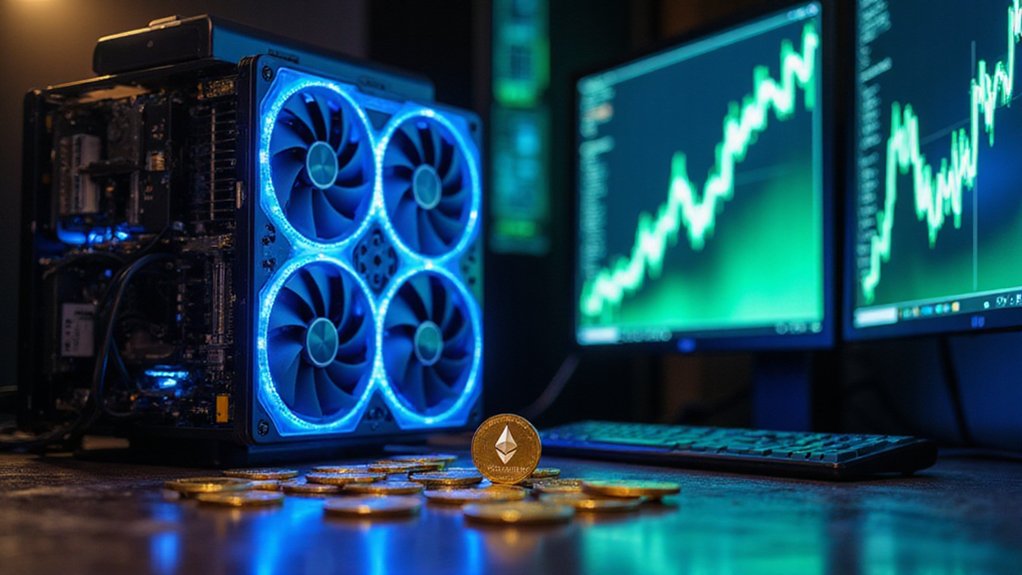Lightning strikes twice in the Bitcoin mining world, though perhaps not in the way most would expect. A solo miner recently defied astronomical odds—1-in-2,800 daily chances—to solve a block using merely 2.3 petahashes per second, earning nearly $350,000 in the process. The feat becomes even more remarkable when considering the miner competed against a global hashrate exceeding 600 exahashes per second, with mining difficulty at a record-breaking 126.98 trillion.
The windfall consisted of 3.173 BTC (3.125 BTC subsidy plus transaction fees), demonstrating how network congestion—or lack thereof—can influence total rewards. Operating through CKpool‘s solo mining infrastructure, this particular success story joins a curious uptick in solo miner victories since February, suggesting that David occasionally does topple Goliath in the computational arena.
Solo mining victories have surged since February, proving computational underdogs can still triumph against industrial giants in Bitcoin’s decentralized arena.
What makes this achievement particularly intriguing is the timing. Industrial miners scaled back operations in June, potentially creating breathing room for smaller operators who typically face severe disadvantages. Whether this miner employed temporary computational power boosts through rented infrastructure—a strategy previously used by another solo miner wielding 261 petahashes temporarily—remains unclear, though the possibility adds another layer of strategic nuance to what appears superficially as pure luck.
The broader implications extend beyond individual fortune. Each solo mining success represents a small victory for network decentralization, challenging the traditional dominance of large mining pools. Industry experts have labeled such events “remarkable feats,” though one might question whether remarkable adequately captures the sheer improbability involved.
The economic landscape makes these victories particularly sweet. With block rewards consistently exceeding $300,000 per block, the incentive structure continues encouraging small miner participation despite overwhelming odds. Transaction fees add variable value depending on network activity, creating additional uncertainty in an already unpredictable venture.
This latest success has reinvigorated interest in Bitcoin mining’s ostensibly egalitarian roots, reminding the community that computational lottery tickets occasionally pay off spectacularly. Solo mining pools like CKpool gain attention as viable alternatives, while the broader mining community grapples with the persistent tension between industrial efficiency and decentralized participation.
The unpredictability inherent in proof-of-work consensus continues producing these David-versus-Goliath narratives, however statistically improbable they remain. The success underscores how mining has evolved from a hobbyist pursuit to an industrial enterprise, yet still occasionally rewards individual miners who compete against massive mining operations with limited resources.









